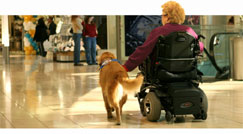 The
Alaska Zoo Board of Directors voted Tuesday to relocate Maggie,
the zoo's lone elephant, to a facility outside Alaska contingent
upon receiving favorable information concerning health, location,
mode of travel and cost implications.
The
Alaska Zoo Board of Directors voted Tuesday to relocate Maggie,
the zoo's lone elephant, to a facility outside Alaska contingent
upon receiving favorable information concerning health, location,
mode of travel and cost implications.June 9th, 2007
Breaking News:
Maggie, Alaska's Lone Elephant, Will
Be Relocated
 The
Alaska Zoo Board of Directors voted Tuesday to relocate Maggie,
the zoo's lone elephant, to a facility outside Alaska contingent
upon receiving favorable information concerning health, location,
mode of travel and cost implications.
The
Alaska Zoo Board of Directors voted Tuesday to relocate Maggie,
the zoo's lone elephant, to a facility outside Alaska contingent
upon receiving favorable information concerning health, location,
mode of travel and cost implications.
Dick Thwaites, board president, said a
primary focus and concern for the board is to ensure Maggie is
physically fit for travel and the stress of relocation. Elephant
experts have advised it is inherently risky to transport large
animals and great care must be taken to ensure the chances for
succes.
"The devil is in the details," Thwaites said. Factors
include:
Thwaites said, "Every effort will be made to expedite a move if and when all the factors for a successful move are favorably addressed. " It is impossible to forecast how much time that will take, given so many variables.
The board's obligations are to health
and welfare of Maggie, the Zoo and its visitors. We are committed
to continue a thoughtful, deliberate, and responsible process
in this serious and challenging matter. It is a time-consuming
and complex process, and we appreciate the professionalism of
the staff and cooperation of a supportive community. In the meantime,
we continue to provide Maggie with the highest level of care possible,
and encourage everyone to appreciate and enjoy her.
http://www.FriendsofMaggie.net
The Main Ingredient in Tylenol is the
Fifth Contaminant Found in Pet Foods During the Past 2 1/2 Months
and Can Be Toxic or Lethal to Pets, Especially Cats
 ASPCA
Sheds Light on Toxicity of Acetaminophen-Reminds Pet Parents to
Stay Alert
ASPCA
Sheds Light on Toxicity of Acetaminophen-Reminds Pet Parents to
Stay Alert
New Contaminant Found in More
Pet Food NEW YORK, June 6, 2007-With reports that acetaminophen
has been found in brands of cat and dog food not included on the
Menu Foods recall list, the ASPCA® (The American Society for
the Prevention of Cruelty to Animals®) today reminded pet
parents that vigilance is the key to keeping their pets safe and
healthy-coupled with a strong dose of common sense.
"Though reports of dogs and cats poisoned from the Menu Foods recall seem to have abated, this news is extremely worrying," said Dr. Steven Hansen, a board-certified toxicologist and senior vice president with the ASPCA, who manages the ASPCA's Animal Poison Control Center (APCC), located in its Midwest Office in Urbana, Ill.
"Our data show that if an average-sized cat ingests as little as one extra-strength acetaminophen pain-reliever caplet and is not treated in time, it can suffer fatal consequences," continued Dr. Hansen. "Depending on the amount ingested, clinical effects can include a condition called 'methemoglobinemia,' which affects the ability of blood cells to deliver oxygen to vital organs, or even liver damage."
"At this point, we have very little information as to the actual level and concentration of this reported contamination, so it's extremely important to be able to recognize any potential warning signs of this kind of poisoning." However, early information on this contamination suggests that concentration levels are not high enough to have an adverse effect on most dogs; cats are more at-risk.
Dr. Louise Murray, director of medicine at the ASPCA's Bergh Memorial Animal Hospital (BMAH) in New York City, and a board-certified internist, elaborates further. "Cats are especially sensitive to acetaminophen toxicity for two reasons. First, they don't have enough of a specific enzyme that enables the body to metabolize the drug well. Second, cats are typically more susceptible to red blood cell damage than certain other species of animals. Put these together with a high dose of acetaminophen, and you have a potentially deadly combination."
The most common effects of acetaminophen poisoning in cats include swelling of the face and paws; depression; weakness; and difficulty in breathing. "We also see a condition called 'cyanosis,'" said Dr. Hansen, "which is literally when their gums and tongue start turning a muddy color due to the lack of oxygen."
In 2006, the APCC received more than 78,000 calls to its hotline involving common human drugs such as painkillers, cold medications, antidepressants and dietary supplements-a 69 percent increase over 2005.
Until more information is provided by the U. S. Food & Drug Administration (FDA), the ASPCA urges pet parents to keep an eye out for any signs of illness in their pets, and also report any changes in dietary consumption or behavior to their veterinarian immediately. Those considering a home-cooked diet for their pets should do so in consultation with their veterinarian, or visit the ASPCA's Web site for more information.
"It is important to remember to never give any medication to your pet without first talking to your veterinarian, and always store potentially poisonous substances in a secure cabinet above the countertop and out of the reach of pets," said Dr. Hansen. "If you think your pet has ingested a poisonous substance, you should take her to your veterinarian immediately."
The ASPCA continues to monitor the pet
food recall situation, and is providing regular updates and advice
for pet parents, at its Pet Food Recall Resource Center at www.aspca.org/recall.
Kenny Kingston - Psychic to the Stars
 Many of you know legendary
psychic Kenny Kingston, the original 'Psychic to the Stars.' You
may not know that Kenny Kingston was born to the seventh daughter
of a seventh daughter. His grandmother taught him how to read
tea leaves when he was four years old. Kenny's mom Kaye taught
him psychometry (being able to pick up psychic vibrations from
touching an object) when he was seven. Family friend Mae West
taught him clairaudio (to pick up psychic vibrations from listening
to a voice) when he was nine. When Kenny was growing up, he gave
psychic messages to neighbors and friends. He appeared on more
television shows than any other psychic and has hosted his own
television series twice.
Many of you know legendary
psychic Kenny Kingston, the original 'Psychic to the Stars.' You
may not know that Kenny Kingston was born to the seventh daughter
of a seventh daughter. His grandmother taught him how to read
tea leaves when he was four years old. Kenny's mom Kaye taught
him psychometry (being able to pick up psychic vibrations from
touching an object) when he was seven. Family friend Mae West
taught him clairaudio (to pick up psychic vibrations from listening
to a voice) when he was nine. When Kenny was growing up, he gave
psychic messages to neighbors and friends. He appeared on more
television shows than any other psychic and has hosted his own
television series twice.
Though his fans have always spanned all age groups, a special trend began when Kenny, for the first time ever in television or radio history, held a one-hour séance at rock station KLOS-FM in Los Angeles, surrounded by 16 people including young hosts Mark and Brian. The séance was broadcast live with no commercial interruptions.
This was his entrée into the world of rock listeners, giving hope to the world's youth. Following the KLOS séance and subsequent interviews on that station he became a regular on "The Morning Zoo", Power 106's zany early morning talk show hosted by Jay Thomas (now a TV & film actor) along with Animal Radio's own Hal Abrams
Kenny Kingston was the personal reader
of Marilyn Monroe and has read for Lucille Ball, Greta Garbo and
Whoopi Goldberg, to name only a few of Kenny's famous clientele.
http://www.KennyKingston.org
Cesar Millan - The Dog Whisperer
 Cesar
Millan, the Dr. Phil for dogs, first developed his techniques
as a youngster in Mexico and knew by age 13 that he wanted to
become "the best dog handler in the world." In Mexico,
he grew up with a pack of dogs that were his closest friends.
It was his grandfather who taught him the one lesson he still
uses today: "Never work against Mother Nature."
Cesar
Millan, the Dr. Phil for dogs, first developed his techniques
as a youngster in Mexico and knew by age 13 that he wanted to
become "the best dog handler in the world." In Mexico,
he grew up with a pack of dogs that were his closest friends.
It was his grandfather who taught him the one lesson he still
uses today: "Never work against Mother Nature."
In the second season of the Dog Whisperer, Cesar goes into the homes of dog owners, without any prior information about the dog's case. Some examples of what you will see is a transformation of aggressive, scared, and compulsive dogs, whose guardians are usually in the dark about how their own behavior contributes to the dogs' quirky traits.
Tune in for the second season of the Dog
Whisperer on National Geographic, every Friday at 8:00pm ET.
http://www.DogPsychologyCenter.com
Birdsong: Soundtrack of the Season
Rae Ann Kumelos, Voice of the
Animal
 Put down the I-Pod and cell-phone
and listen to the timeless soundtrack that accompanies the season
of Spring: birdsong.
Put down the I-Pod and cell-phone
and listen to the timeless soundtrack that accompanies the season
of Spring: birdsong.
http://www.VoiceOfTheAnimal.org
Service Dogs
Marcie Davis, Working Like
Dogs: The Service Dog Guidebook
 They
can tuck you in at night, help with the laundry, open doors for
you, answer the telephone, bring you a book, and so much more.
Are we talking about a spouse? A butler? A good friend? No, we
are talking about service dogs.
They
can tuck you in at night, help with the laundry, open doors for
you, answer the telephone, bring you a book, and so much more.
Are we talking about a spouse? A butler? A good friend? No, we
are talking about service dogs.
We see service dogs in the mall, we see them walking down the street, we may even see them at concerts, restaurants, and on an airplane assisting their human companion. But most of us don't really know what it is like to have their life totally changed by one.
 This
was true for Marcie Davis until the day she received the long-awaited
call that she was accepted into the next training class for service
dog recipients. That was 13 years ago. First Ramona, later Morgan
and now Whistler have become Marcie's constant canine companions.
This
was true for Marcie Davis until the day she received the long-awaited
call that she was accepted into the next training class for service
dog recipients. That was 13 years ago. First Ramona, later Morgan
and now Whistler have become Marcie's constant canine companions.
These remarkable dogs changed her life.
Over the years, Marcie has answered hundreds of people's questions.
To help educate potential service dog applicants and recipients,
puppy raisers, service dog trainers and others, Davis, along with
Melissa Bunnell, have written WORKING LIKE DOGS: The Service Dog
Guidebook.
http://www.workinglikedogs.com
Custody Dispute Over Dog
Britt Savage
 When Ron Callan Jr. passed away
recently, there not only remained a $2 million dollar estate,
but also the custody of his 13-year-old Golden Retriever, Alex.
And with no will, various parties were fighting over custody of
Alex.
When Ron Callan Jr. passed away
recently, there not only remained a $2 million dollar estate,
but also the custody of his 13-year-old Golden Retriever, Alex.
And with no will, various parties were fighting over custody of
Alex.
A judge has been appointed to handle this dispute between Ron's father, Ron's father's ex wife, Ron's fiancé and Ron's former girlfriend, all who claim to love Alex and will give him the necessary care and treatment he deserves.
Ron's father currently has custody and
brings Alex to work with him. The judge will soon make a decision
on who is best suited to care for Alex.
Online Pet Meds
Dr. Jim Humphries, Veterinary News Network
 Do your research when it comes
to online pet meds. Some experts say the sites are good and others
are not.
Do your research when it comes
to online pet meds. Some experts say the sites are good and others
are not.
You may always be looking for a good deal on pet medications,
but you may be weary of ordering your pet meds online. Internet
pet medication sites are growing and some are perfectly legitimate,
but others are not. There are some great consumer buys on line,
but you need to be careful where you buy from, because it may
not be the right medication for your pet.
Making sure the site is a certified pharmacy is very important. Check what form your medication will come in. For instance, chewable tablets versus pills. In addition, your pet may not be able to wait for the medication to arrive. And remember, no one online knows your pet. One of the disadvantages of an online pharmacy is that you're talking to a computer, there's no personal contact. Another hitch could be that not all vets want to fax in prescriptions for online pharmacies. Those who do, say it works best for routine care.
Dr. Arthur Friedman, of the Hawthorne
Animal Hospital, said the small markup he and most other veterinarians
charge for filling prescriptions in their office pharmacies help
keep the cost of regular appointments lower. Finally, experts
said not to forget to add the cost of shipping when you do this
comparison-shopping for pet medications online.
http://www.VetNewsNet.com
Spay or Pay
Mike Fry, Animal Ark Animal Shelter & Host of Animal
Wise Radio with Dr. Linda Wolf
 Spay or Pay the controversial
bill pushing the nation's first statewide mandate to sterilize
dogs and cats.
Spay or Pay the controversial
bill pushing the nation's first statewide mandate to sterilize
dogs and cats.
http://www.AnimalWiseRadio.com
http://www.AnimalArkShelter.org
Talk With Your Animals
Joy Turner
A dog explains that he doesn't
mean to get angry when sitting on his guardian's lap, but when
the guardian moves, it startles him and he is only trying to protect
himself. He originally came from an abusive home where he wasn't
able to fight back, and now he feels safe and feels he can protect
himself without harm.
http://www.TalkWithYourAnimals.com
Stork Gets Nose Job
Britt Savage
 An oriental white stork named "Taisa"
received a plastic resin prosthetic that was recently attached
to the upper part of it's beak which snapped off after getting
stuck in metal wiring at Akita's Omoriyama Zoo, northern Japan.
Taisa had lost weight since he broke his beak last November because
he found it difficult to catch live fish, and no longer got along
with his female breeding mate due to stress.
An oriental white stork named "Taisa"
received a plastic resin prosthetic that was recently attached
to the upper part of it's beak which snapped off after getting
stuck in metal wiring at Akita's Omoriyama Zoo, northern Japan.
Taisa had lost weight since he broke his beak last November because
he found it difficult to catch live fish, and no longer got along
with his female breeding mate due to stress.
Veterinary Acupuncture
Dr. Jim Humphries, Veterinary
News Network
 As
interest and application of acupuncture grows in veterinary medicine,
practitioners are using the modality for much more than pain control.
In fact, acupuncture can be used to help treat allergies, seizures,
reproductive problems, and liver and kidney disease. Acupuncture
involves the insertion of small gauge needles to various points
on the body in order to cause physiological responses in the body.
Acupuncture works by stimulating nerve endings near acupuncture
points. These nerve fibers then conduct impulses to the brain
and spinal cord, causing changes in the body that speed healing.
Animal owners are showing a growing interest in this field in
an effort to find the best care for their pets, especially when
conventional medicine and surgery options may not have been successful.
As
interest and application of acupuncture grows in veterinary medicine,
practitioners are using the modality for much more than pain control.
In fact, acupuncture can be used to help treat allergies, seizures,
reproductive problems, and liver and kidney disease. Acupuncture
involves the insertion of small gauge needles to various points
on the body in order to cause physiological responses in the body.
Acupuncture works by stimulating nerve endings near acupuncture
points. These nerve fibers then conduct impulses to the brain
and spinal cord, causing changes in the body that speed healing.
Animal owners are showing a growing interest in this field in
an effort to find the best care for their pets, especially when
conventional medicine and surgery options may not have been successful.
http://www.vetnewsnet.com
Listen to the
1st Hour ABRIDGED VERSION Podcast of this show (#393).
Purchase
a CD Copy of this Show
![]() View Animal Radio
Network® Broadcast Schedule in a new window.
View Animal Radio
Network® Broadcast Schedule in a new window.
![]() Listen to Animal Radio®
- Go to the launch page
Listen to Animal Radio®
- Go to the launch page
![]() Return to Animal Radio Network® Home Page
Return to Animal Radio Network® Home Page
![]() Read
June Newsletter
Read
June Newsletter